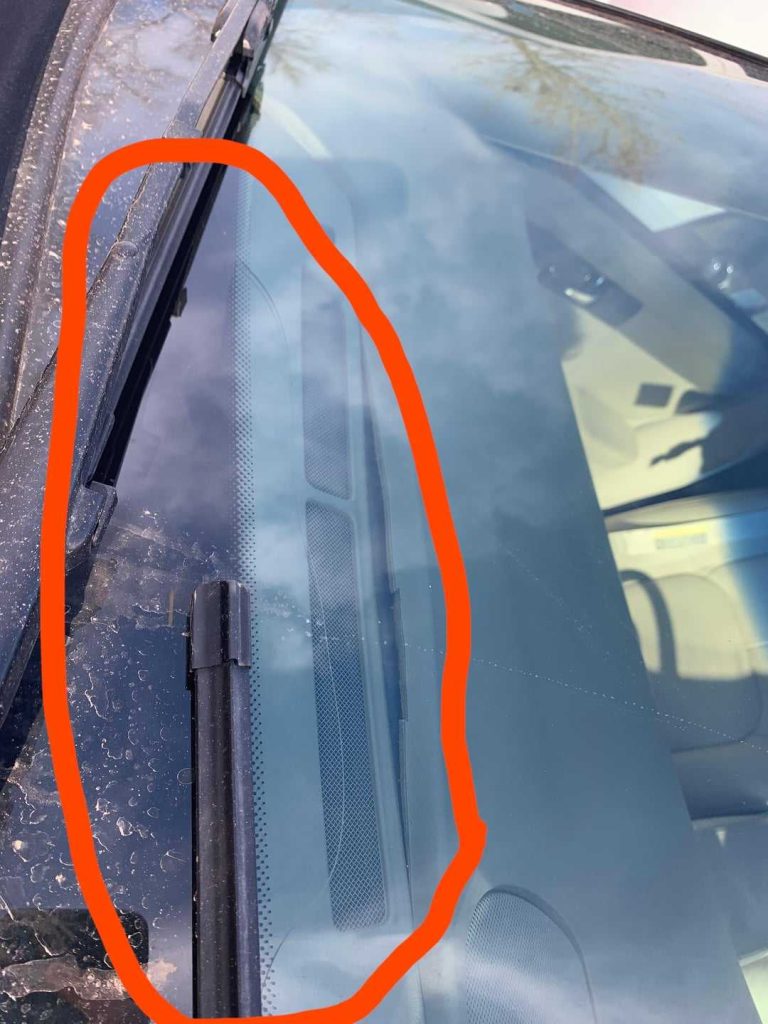Yes, an acorn can crack a windshield, but it’s relatively unlikely to cause significant damage. Most acorns are small and lightweight, so they rarely generate enough force to break glass unless they fall from a great height or strike a vulnerable spot.
A small acorn hitting your windshield is usually just a minor nuisance, but in rare cases, especially when falling from high above or hitting a weak spot, it can cause cracks or chips. Typically, such damage is caused by larger objects or debris during a storm, but don’t dismiss the possibility of an acorn contributing to a crack if it hits with enough force at just the right angle. It’s always good to inspect your windshield after a fall from a tree or during fall seasons, as minor chips might develop into larger cracks over time. Understanding the impact of different debris helps you stay prepared and protect your vehicle from costly repairs.
Can an Acorn Crack a Windshield?
Understanding the Impact of Acorns on Windshields
Acorns are small, hard nuts that fall from oak trees. Many drivers worry about whether an acorn can crack their windshield during a fall. Typically, acorns are lightweight and soft compared to other objects that could damage glass.
However, under certain conditions, an acorn has the potential to cause damage. The severity depends on factors such as the acorn’s size, speed when hitting the glass, and the windshield’s strength.
How Hard Is an Acorn?
Acorns are made of a tough outer shell with a soft nut inside. Their shells are hard enough to protect the seed within, especially when falling from a height. When dropped from a tree, acorns can reach speeds that make impact potentially damaging.
While generally small and light, a large, mature acorn can be over an inch long and quite dense. This density increases the force upon impact, especially if the acorn falls from a significant height.
Could an Acorn Crack Your Windshield?
Most acorns are unlikely to crack a windshield. Your windshield is designed to withstand impacts from smaller objects like stones or gravel. The likelihood of an acorn causing a crack depends on several factors:
- Size and weight of the acorn: Larger acorns have more mass, which can increase impact force.
- Height from which it falls: The higher the fall, the faster the acorn is traveling.
- Speed at impact: Speed increases with height and affects impact energy.
- Type of windshield: Some windshields are tougher or have protective coatings that resist cracks.
In most everyday situations, an acorn is too light and slow to cause a crack. But in rare circumstances, it could leave a dent or chip if it hits with enough force.
Factors That Increase the Risk of Damage
Various elements can increase the chance of an acorn damaging your windshield:
Height of the Fall
Higher trees mean acorns fall faster. When falling from tall oaks, impact speed can increase significantly.
Size of the Acorn
Big, mature acorns weigh more and have more momentum, making impacts more powerful.
Angle of Impact
If an acorn hits the windshield directly in the center, it can cause more damage than a glancing blow.
Wind Conditions
Wind can change the acorn’s trajectory, causing it to hit at odd angles or with more force.
Comparing Acorn Impact to Other Debris
To understand this better, let’s compare acorn impacts to other common objects:
| Object | Average Weight | Impact Potential |
|---|---|---|
| Small Stone | 10 grams | Higher risk of cracking |
| Acorn | 5-20 grams | Usually unlikely to crack |
| Fallen Leaf | Less than 1 gram | Very low risk |
This table shows that acorns are generally less hazardous than stones but can still cause minor damage under the right circumstances.
What Happens When an Acorn Hits a Windshield?
Typically, an acorn impact results in minor damage like a small chip or scratch. Rarely does it cause a full crack unless other factors are at play.
If an acorn hits at high speed or hits a weak spot, it may leave a dent or a tiny chip. In some cases, the impact can cause the integrity of the glass to weaken, leading to a crack over time.
Can You Prevent Acorn-Related Damage?
Yes, there are several ways to prevent damage from falling acorns:
- Park your car under trees: Use covered parking when possible.
- Use windshield covers: These can protect against falling debris.
- Regularly clear your driveway: Removing acorns can prevent them from hitting your windshield.
- Check for weak spots: Repair small chips early to prevent cracks.
Taking these precautions can significantly reduce your chances of damage from acorns or similar objects.
What Should You Do if Your Windshield Gets Hit?
If an acorn hits your windshield, assess the damage. Small chips can sometimes be repaired easily with a resin filler. Larger cracks may require a windshield replacement.
It’s important to act quickly to prevent the crack from spreading. Remember, even a tiny chip can turn into a large crack if not treated promptly.
Summary: How Likely Is an Acorn to Crack Your Windshield?
While an acorn can potentially crack a windshield, it’s quite rare. Most impacts result in minor chips or dents rather than full cracks.
The risk increases when acorns fall from tall trees or when larger acorns hit with greater force. Still, the overall chances remain low given their size and weight.
Related Topics
Here are some related topics to consider discussing further:
- Types of damage caused by falling debris
- Best windshield protection tips
- How to repair small chips and cracks
- Different materials used in windshields for strength
- Comparing the impact of leaves, acorns, and stones on vehicle glass
By understanding the impact of acorns and similar objects, car owners can better prepare and avoid unnecessary repairs. Remember, while acorns are generally harmless, staying vigilant during fall seasons can save you from unexpected damage.
Acorn Hits Windshield
Frequently Asked Questions
Could a falling acorn cause damage to a car’s windshield?
Yes, if an acorn hits a windshield with enough force, it can cause damage. Generally, an acorn falling from a height can create impact that leads to cracks or chips, especially on older or more brittle windshields. However, most acorns are relatively small, so the likelihood of significant damage depends on factors like the height from which it falls and the size of the acorn.
What factors determine whether an acorn can crack a windshield?
The size and weight of the acorn, the height from which it falls, and the angle of impact all influence whether it can crack a windshield. Windshield material quality and its current condition, such as existing chips or weaknesses, also play roles. A larger, heavier acorn falling from a tall tree has a higher chance of causing damage than a smaller acorn falling from a lower branch.
Are newer windshields more resistant to damage from falling acorns?
Modern windshields are made with advanced safety features like layered glass and lamination, which help absorb impacts better. These improvements make newer windshields more resistant to minor impacts such as falling acorns. Nonetheless, a high-velocity impact from a large acorn can still cause cracks regardless of the windshield’s age or quality.
What precautions can drivers take to prevent windshield damage from acorns?
Drivers can avoid parking under heavily laden trees during the fall when acorns are most likely to fall. Using windshield covers provides an extra layer of protection, especially if parking for extended periods. Additionally, inspecting and repairing small chips early prevents further cracking if an acorn does hit the windshield.
How does the impact force of an acorn compare to other objects that could crack a windshield?
Compared to larger objects like rocks or debris, an acorn exerts significantly less force upon impact. While a falling acorn can crack a windshield if it hits at the right angle and force, it is generally less likely to cause extensive damage than heavier or faster-moving objects. The damage from an acorn is often minor, such as small chips or surface cracks.
Final Thoughts
In conclusion, while an acorn can cause minor damage, it is unlikely to crack a windshield. The impact force of a falling acorn generally isn’t strong enough to break glass.
However, under certain circumstances, a large acorn hitting the right spot might cause a small crack or chip.
Can an acorn crack a windshield? It is possible but rare, especially with smaller acorns. Stay cautious and keep a close eye on your vehicle, especially during fall.



